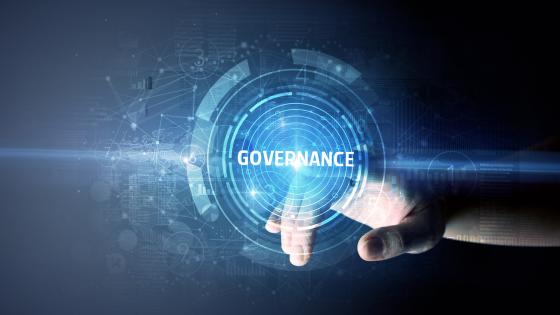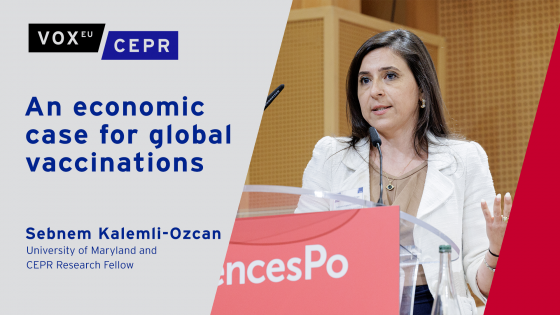To the apparent surprise of G20 finance ministers and central bank governors meeting in Washington last month, George W. Bush, the outgoing US President, proposed that a formal summit of G20 heads of state convene in Washington on November 15th. This will be the first time that the G20, established in the aftermath of the Asian financial crisis of 1997-9 has been convened at the heads of state level.
The immediate backdrop to this important initiative is well known: the financial crisis emanating in the developed world, particularly the US, which is now engulfing emerging markets. But what are the summit’s prospects?
Some observers argue that it is motivated by the need to be seen to be doing something (anything!), in order to contribute to restoring market confidence. In this view not much can be achieved beyond foreign policy symbolism and, in any event, heads of state are not the right people to be discussing complex issues of international finance and management of the global economy - a job best left to finance ministers and central bank governors.
Some see it as an implicit recognition that G7/8 efforts are insufficient in the context of a changing global political economy. One variation on this theme regards the meeting as an attempt to sell G7 crisis management programmes to a broader group of “systemically significant” countries – both developed and developing. Another, optimistic variation sees it as a golden opportunity to overhaul global financial governance, with the grandest proposal being that the summit be used to kick-start a “Bretton Woods 2” process equivalent in ambition to its illustrious predecessor.
Clearly the agenda could be crowded. It is worth remembering that the original Bretton Woods conference took years to conclude and was led by senior officials, not heads of state. Furthermore, that conference was convened in the context of a global conflagration – World War Two – in the aftermath of the most serious economic meltdown in recent economic history – the Great Depression. The current crisis, whilst serious, does not currently appear to be in the same “league” and occurs in the absence of worldwide conflict.
Consequently, a sense of historical perspective is necessary in order to temper ambitions for the Washington summit, thereby focusing on what can realistically be achieved rather than lofty, unrealisable ambitions.
Merely convening the G20 heads of state is a significant achievement. This grouping, whilst not perfectly representative, marks a substantial improvement over the G8 – at least in terms of legitimacy. And it is arguably better to have a seat at the table than not. Yet the agenda is mind-numbingly complex.
How should South Africa position itself?
In a recent briefing, I summarise how South Africa should react to the financial crisis and position itself in the international agenda. First, our representatives should support the summit’s institutionalisation. Whilst heads of state are not best equipped to negotiate the items on this agenda, a regular summit at their level could provide the necessary pressure to advance discussions and broker key political compromises. Concerning those compromises, South Africa is involved in developing country groupings that offer the potential for countervailing the G7/8 on issues of broad developing country interest, and should start from a position of confidence that these formations will gain in strength as economic power shifts eastward. The G20 may not be the most representative grouping, but it has a track record and is a good basis from which to proceed.
Second, do not expect progress across the board. Our delegation should adopt a medium-term time horizon, focusing on four broad issues:
- supporting global growth
- supporting regulatory reform and reconfiguring the IMF
- supporting reform of Asian currency management practices
- underlining support for the Doha Round of WTO negotiations.
G20 leaders will be called upon to support global economic growth through monetary and fiscal policy actions. South Africa may be in a position to offer modest fiscal expansion. Inflation has probably peaked here, as commodity prices, particularly oil, should decline for the foreseeable future. However, assuming supplementary expenditures are deployed to importing capital goods this will aggravate our current account deficit and thereby weaken the Rand. The latter is particularly vulnerable as capital continues to flow out of emerging markets. Hence imported inflation is likely to remain relatively high. The combination of high inflation and a high current account deficit places a floor under the prospects for monetary easing via interest rates. So whilst South Africa may be able to offer some contribution on the fiscal side, arguably through tax cuts, there is little room for manoeuvre on the monetary front. But a fiscal policy gesture would serve both domestic political goals and afford some negotiating traction on other agenda items at the summit.
The South African financial system has emerged relatively unscathed from the crisis – to date – largely owing to sound financial regulation. Accordingly, South Africa should support France and Germany in pursuing financial regulatory reform and multilateral oversight. However, we must be mindful that ambitious regulatory reform proposals are unlikely to succeed, due to US and UK opposition (New York and London have extracted major economic benefits from the status quo). And the Europeans are the principal obstacle to increasing developing country participation in the IMF (by virtue of European over-representation) and other multilateral institutions concerned with regulating global finance. Furthermore, such reforms are unlikely to benefit South Africa and Africa directly but will probably culminate in diminished African “voice” in those institutions. Therefore, South Africa should hold the line on maintaining a “floor” below which African representation should not subside. And we should push for restructuring the IMF’s Board in order to increase African representation. In the absence of favourable movement on these issues South Africa should withhold support for proposals to increase the oversight powers of the IMF in domestic financial regulation – a proposal that will run up against US opposition.
But South Africa should support IMF oversight of currency management regimes. Our floating currency bears the burden of adjustment to global macroeconomic imbalances. And there is a strong desire in the ruling tripartite alliance to boost industrial growth through exports, which would benefit from a more competitive currency. Therefore South Africa has a strong stake in seeing Asian currency appreciation and should support the US and EU position on this issue. Recognising that this issue is unlikely to gain much traction at the summit, and that there are some sensitivities in South Africa around supporting a “northern agenda”, our delegation could signal its position without holding strongly to it. Nonetheless, in the medium term, Asian currency management reform is critical to alleviating the global macroeconomic imbalances that underpinned the financial crisis.
Finally, South Africa should reaffirm its willingness to seeing the Doha round through. Concretely, we should join the UK, Brazil, and Australia in pushing for further concessions on agriculture from France, Germany, the US, Japan, and India, in return for which some flexibility on industrial tariffs and services should be proffered. Such conditional signals should be made in the full knowledge that the Doha round has its own political dynamic which to date seems to have been impervious to assurances of various heads of state.



